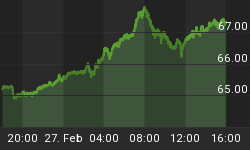According to legal analytics firm Lex Machina, cryptocurrency related lawsuits are up over 300 percent this year, with over 45 legal cases opened in the first half of the year.
The report highlights the ongoing crackdown from the SEC on initial coin offerings, with the regulatory agency accounting for up to 30 percent of this year’s legal battles.
In November alone, the SEC targeted EtherDelta, a decentralized trading platform for Ethereum tokens, and two crypto-companies, AirFox and Paragon, for raising capital through the sale of their tokens without registering them as securities. The two ICOs, which raised $15 million and $12 million respectively, were ordered to return funds to all investors, register their offerings as securities, and pay fines of up to $225,000.
Despite Washington’s fire-at-the-hip approach, however, regulators have given a number of crypto-companies the opportunity to retroactively register their offerings as securities. Additionally, the report notes that ICOs are getting off easy compared to traditional banking institutions for the same charges, with the “wealth management” arm of Bank of America, Merrill Lynch taking a $1.25 million hit for selling unregistered securities back in March.
The SEC Draws a Line in the Sand
Last week, the SEC also released a statement, drawing clearer regulations in relation to the cryptocurrency space.
In the cease-and-desist proceedings of AirFox and Paragon, the SEC highlighted several key issues by which other potential cryptocurrency companies should follow. Related: The Intrinsic Value Of Gold-Backed Cryptos
In what has generally been considered the ‘new-normal’ this year, the SEC reinforced its position that most ICOs are essentially securities offerings and must comply with traditional securities laws, including registering the tokens, clarifying information about the company, the securities it is offering, and the product itself. Though there are some potential exemptions, it’s becoming clear that very few, if any, crypto companies will qualify for special treatment.
In a statement from the SEC, the agency notes, “market participants must still adhere to our well-established and well-functioning federal securities law framework when dealing with technological innovations, regardless of whether the securities are issued in certificated form or using new technologies, such as blockchain.”
The SEC also underlined new expectations for exchanges, including smart contract-based decentralized exchanges, stating, “A platform that offers trading in digital asset securities and operates as an "exchange" (as defined by the federal securities laws) must register with the Commission as a national securities exchange or be exempt from registration.”
Though the crackdown seems harsh, it does provide better insight into what the SEC expects from ICOs and cryptocurrency companies moving forward.
The Changing Face of ICOs
Security Token Offerings, or STOs, have become somewhat of a buzzword this year, with many blockchain and crypto companies rolling back their ICO plans in favor of a new, more compliant STO.
STOs, like normal securities, offer investors the opportunity to take ‘ownership’ over what a particular offering represents, such as equity, real estate or derivatives in addition to bringing greater liquidity to markets.
Related: Stocks Slide Sideways As Uncertainty Mounts
In addition to bridging the gap between traditional finance and the crypto-space, STOs offer enhanced credibility to the cryptocurrency space, subjecting companies to a new process of approval before they are able to begin selling their offerings. This move, in particular, stands to benefit the space, which has become bogged down with schemes and scams, products that do not live up to what they claim, and flat out thievery.
With the Wild West of crypto funding coming to an end, however, the ‘little guy’ arguably takes another hit in the world of traditional finance. Because the SEC requires would-be investors in “riskier” pre-sale rounds to be ‘accredited,’ retail investors often miss major opportunities to get in on offerings at extremely low-price points.
Whether this move into a more regulated space will be good for cryptocurrency markets remains to be seen, but one thing is certain, ICOs are changing and there are serious consequences for those trying to skirt the rules.
By Michael Kern via Crypto Insider
More Top Reads From Safehaven.com:
















